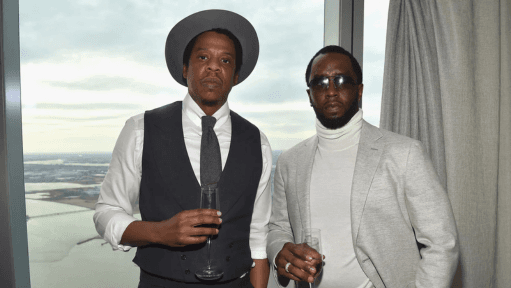
Jay-Z and Diddy Face Serious Misconduct Allegations in Civil Suit
Claims of Assault and Trafficking Spark Legal and Public Scrutiny in High-Profile Case
Musician and producer Jay-Z, whose real name is Shawn Carter, has been accused in a civil lawsuit of raping a 13-year-old girl alongside hip-hop mogul Sean Combs, known as Diddy. The lawsuit, filed Sunday, claims the alleged incident occurred during an afterparty following the MTV Video Music Awards in September 2000.
The updated complaint, which previously identified Jay-Z as "Celebrity A," accuses both men of taking turns assaulting the girl while others present at the party did nothing to intervene. The complaint also alleges that Jay-Z had been involved in similar incidents with Combs in the past.
Jay-Z Denies Allegations, Calls Lawyer’s Actions Blackmail
Jay-Z has denied the allegations, claiming they are baseless and accusing the plaintiff’s lawyer, Tony Buzbee, of attempting blackmail through a demand letter. In a statement released via Roc Nation on X, Jay-Z stated:
"These allegations are so heinous in nature that I implore you to file a criminal complaint, not a civil one! Whomever would commit such a crime against a minor should be locked away."
Jay-Z also dismissed the claims as a tactic to provoke public scrutiny and force a settlement.
Diddy Faces Separate Criminal Charges
Diddy, who is 55, is facing separate federal criminal charges for sex trafficking and racketeering. Prosecutors allege that he coerced women into participating in drug-fueled sex parties using threats and violence. Diddy has pleaded not guilty, and his trial is scheduled for May 5, 2025.
Additionally, Diddy is the subject of over 100 civil suits, many of which are being spearheaded by attorney Tony Buzbee. These suits allege various forms of abuse and misconduct.
Legal Background
Civil Lawsuits vs. Criminal Cases
The allegations against Jay-Z are part of a civil suit, meaning the plaintiff is seeking financial compensation rather than criminal penalties. Civil cases require a lower burden of proof, relying on a "preponderance of evidence" rather than the "beyond a reasonable doubt" standard of criminal cases.
Jay-Z’s challenge to bring a criminal complaint underscores this distinction. Criminal charges would require significant evidence to warrant an indictment, while civil cases allow private individuals to pursue claims directly in court.
Statute of Limitations
Sexual assault cases often face limitations based on how much time has passed since the alleged incident. However, some jurisdictions have extended or removed these limits, particularly for cases involving minors or under new "look-back" laws that allow older claims to be revisited. The success of this lawsuit may depend on whether such provisions apply.
Pattern Evidence and Precedent
The allegations against Diddy in federal court could impact public perception of the case against Jay-Z. Courts often weigh the admissibility of pattern evidence carefully, ensuring that unrelated allegations do not prejudice individual cases. However, if credible evidence links the two to a broader pattern of misconduct, it could strengthen the plaintiff's case.
Legal Opinion
- Evidentiary Challenges:
The success of the civil suit against Jay-Z will hinge on the availability of corroborating evidence, such as witness statements, communications, or other documentation. Without tangible proof, the case may rely heavily on the credibility of the plaintiff. - Strategic Use of Civil Claims:
Civil suits are sometimes used as a precursor to criminal charges, as they provide a platform to gather evidence and test allegations in court. However, Jay-Z’s insistence on criminal charges suggests confidence in his defense and a belief that the allegations lack sufficient proof. - Impact on Reputation and Financial Settlements:
High-profile defendants like Jay-Z and Diddy often face public scrutiny regardless of the case's outcome. Settling a civil case could mitigate reputational damage, but doing so might also be seen as an admission of liability. Jay-Z’s decision to fight the claims head-on suggests he is prioritizing clearing his name over financial considerations. - Broader Implications for Celebrity Misconduct Cases:
The wave of allegations against high-profile figures underscores the growing willingness of survivors to seek justice through legal avenues. However, cases involving celebrities often raise questions about motivations, especially when financial settlements are pursued instead of criminal convictions.
Conclusion
This case exemplifies the complexity of handling high-profile allegations, balancing the pursuit of justice with the need for substantial evidence. As the legal process unfolds, the outcomes will likely have lasting implications for both the accused and broader conversations about accountability and abuse in the entertainment industry.
For any enquiries or information, contact ask@tlr.ae or call us on +971 52 644 3004. Follow The Law Reporters on WhatsApp Channels